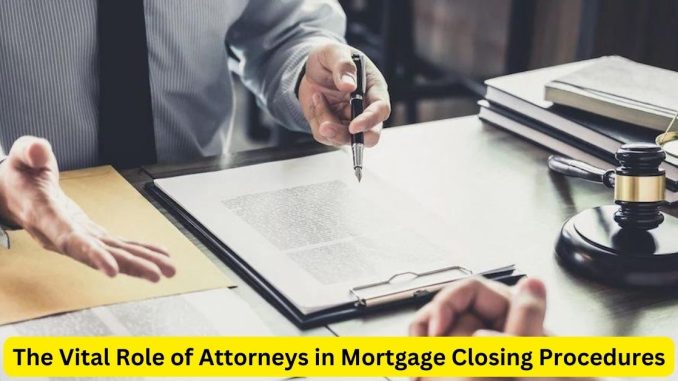
Mortgage closing procedures are a culmination of meticulous steps and legal intricacies that culminate in the transfer of property ownership. At this critical juncture, attorneys play a pivotal role, ensuring the process adheres to legal frameworks, protecting the interests of both the buyer and the lender.
One of the primary functions of attorneys in mortgage closings is to review and verify the legality and accuracy of documents. They meticulously examine the myriad of papers involved, including the sales contract, mortgage loan documents, title insurance, and various disclosures. Their keen eye aims to detect any discrepancies, ensuring all terms align with the negotiated agreements and comply with state and federal regulations.
Moreover, attorneys often facilitate the closing process itself. They explain legal jargon, review the terms of the agreements, and ensure both parties understand their rights and obligations. This guidance minimizes misunderstandings and promotes a smoother transaction.
Title searches, a crucial part of the closing process, are typically conducted or overseen by attorneys. They delve into property records to validate the seller’s right to transfer ownership and uncover any outstanding liens or claims against the property. Identifying potential issues beforehand can prevent legal disputes post-closing.
Attorneys also play a crucial role in fund disbursement. They oversee the transfer of funds from the lender to the appropriate parties, ensuring that all payments, including closing costs, taxes, and insurance, are accurately allocated. This oversight is essential for a legally sound and transparent transaction.
Furthermore, attorneys are often tasked with the responsibility of drafting necessary legal documents. They prepare deeds, affidavits, and other paperwork required to formalize the transfer of ownership. Their expertise in legal drafting ensures precision and compliance with local regulations.
In some jurisdictions, attorneys conduct the closing itself. They supervise the signing of documents, collect and distribute payments, and ensure all legal requirements are met. Their presence offers an additional layer of protection, assuring all parties that the closing adheres to legal standards.
The involvement of attorneys in mortgage closing procedures goes beyond just the closing day. They offer legal counsel throughout the entire process, addressing any legal concerns that may arise, and providing invaluable expertise to navigate complex legal issues.
In essence, attorneys serve as guardians of the legal framework surrounding mortgage closings. Their meticulous attention to detail, legal expertise, and commitment to upholding the interests of their clients make their role indispensable. Their presence not only ensures a legally binding transaction but also provides peace of mind to both buyers and lenders in the complex world of real estate transactions.
Leave a Reply